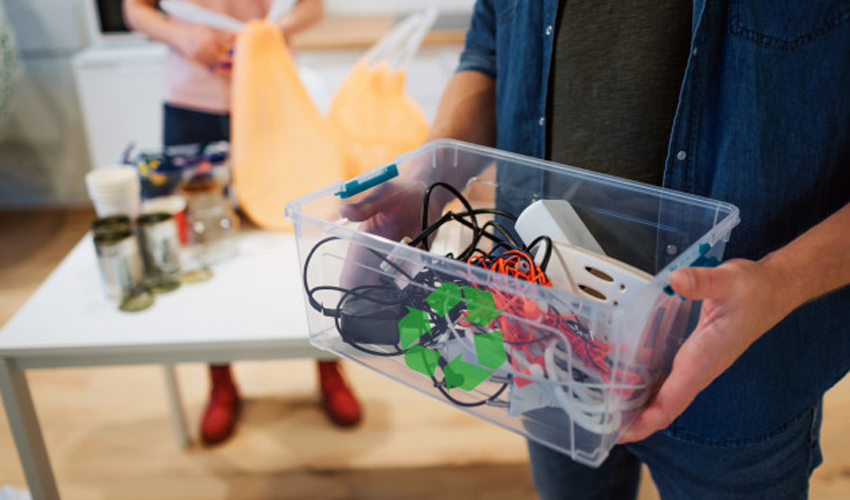
So you’ve got an old electronic, obsolete part or device. What should you do? Is it safe to recycle?
Most electronic parts or devices have a lifespan or an expiration date. Eventually that obsolete, outdated part or device becomes what’s known as electronic waste, or e-waste – consumer or business electronic products that is near or the end of its useful life. As demand for high-tech products continues to soar, that means a majority of electronics get discarded over time. This is the case when more consumers switch out their electronics in favor of newer, more technologically-advanced models.
A record 53.6 million metric tons of e-waste was generated worldwide in 2019, up 21% in five years, according to the Global E-waste Monitor 2020 report, which was produced in collaboration with the UN Environment Program (UNEP).
And that’s not all. The report also predicts that global e-waste (discarded products with a battery or plug) will skyrocket to a whopping 74 million metric tons by 2030 – almost doubling e-waste in just 16 years.
So the answer to the question at the start is a resounding, yes. Don’t toss that old electronic part/device in the trash. Recycle it instead – it’s safer for humans, the environment and the Earth.
Why Recycling is Good for Mother Earth
E-waste contains toxic additives or substances such as mercury, chromium, lead, beryllium, polyvinyl chloride, cadmium, and other metals and plastics – elements that are hazardous to humans and the environment. When electronics are discarded and dumped into landfills, their toxic materials can seep into soil and water, while e-waste placed into incinerators can pollute the air when burned.
This is why it’s extremely important to properly recycle your old electronics in a secure and sustainable manner. Only 17.4% of e-waste was collected and recycled in 2019, the Global E-Waste Monitor reported. “This means that gold, silver, copper, platinum and other high-value, recoverable materials conservatively valued at $57 billion – a sum greater than the Gross Domestic Product of most countries – were mostly dumped or burned rather than being collected for treatment and reuse,” the report noted.
Natural metallic resources like gold, copper, aluminum, and silver found in many electronic devices can be recycled and reused to create new gadgets, instead of mining for more resources. Recycling these materials conserves energy and prevents air and water pollution.
In fact, more states are recognizing the need to keep e-waste out of city landfills by promoting recycling and educating the public about its benefits.
There are 25 states that have passed legislation requiring statewide e-waste recycling, according to the Electronics TakeBack Coalition (ETBC), an organization that promotes green design and responsible recycling in the electronics industry. There are several more states working on passing new laws mandating recycling, or improving existing laws. The ETBC also noted that all laws except for California and Utah use the Producer Responsibility approach, in which the manufacturers must pay for recycling. This means that 65% of the U.S. population is now covered by a state e-waste recycling law, states the ETBC.
How and Where to Recycle
The first step before you recycle any old electronic part is to make sure you back up your data before you wipe out all your personal information from your electronics. You don’t want your passwords, account numbers and photos to be accessible once you recycle your device or electronics.
Once you’ve deleted your data, look at retailers in your area that offer recycling programs. Retailers like Best Buy, Staples and Amazon offer recycling options. There are also nonprofit and local community organizations like Call2Recycle.org that offer drop-off locations all across the U.S.
Other sites like Earth911.com offer an extensive recycling database, where you can do an online search by entering the material you are trying to recycle, along with your ZIP code to find the nearest recycling location, or call 1-800-CLEANUP.
If you’d rather donate your electronics, Goodwill accepts out-of-date workstations and devices through its partnership with the Dell Reconnect program. The organization accepts computers, laptops, hard drives, speakers, software, monitors and more.
In conclusion, recycling old electronic parts and devices will reduce our e-waste footprint, save space in landfills, conserve energy, and protect the environment from pollution. This is proof that even the smallest things can make a difference and save the planet.